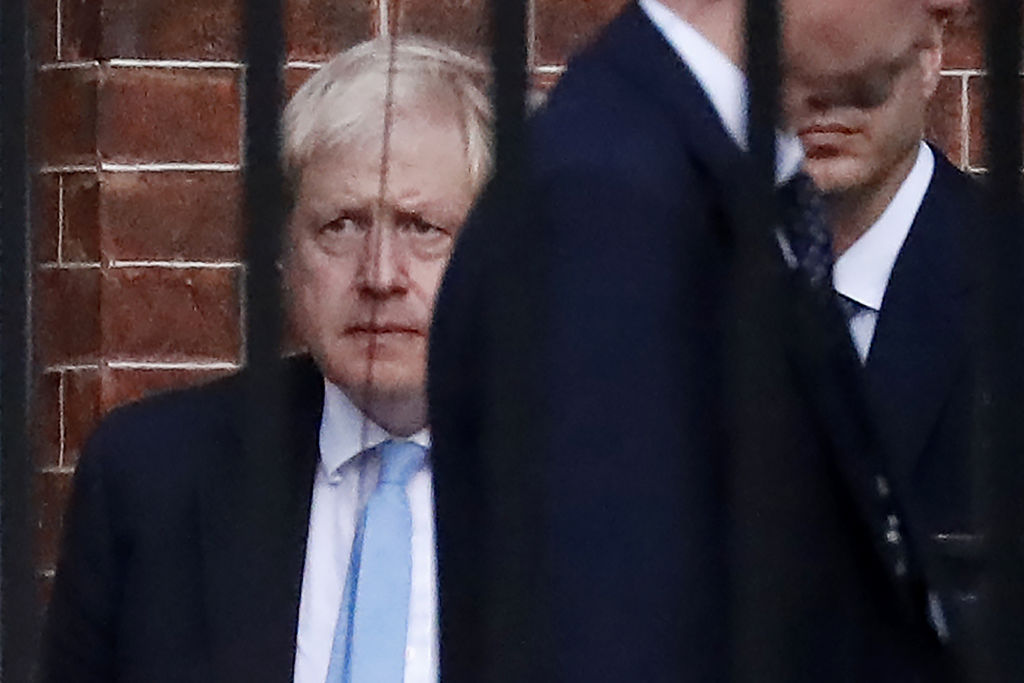EU and Britain's Boris Johnson have reached a Brexit deal, though its fate is uncertain


A free daily email with the biggest news stories of the day – and the best features from TheWeek.com
You are now subscribed
Your newsletter sign-up was successful
British and European Union negotiators reached a preliminary agreement Thursday on Britain's withdrawal from the EU. European Commission President Jean-Claude Juncker tweeted: "We have one! It's a fair and balanced agreement for the EU and the U.K." British Prime Minister Boris Johnson called it a "great new deal" and urged Parliament to ratify it in a special session on Saturday. The other 27 EU nations, whose leaders are meeting for a summit later Thursday, also have to approve the new Brexit deal.
Juncker said he will recommend the other EU nations back the agreement, but Johnson already saw his narrow passageway to Parliament's approval shrink further when his Conservative Party's Northern Ireland partners, the Democratic Unionist Party, said they "could not support what is being suggested on customs and consent issues" for the border between Ireland, an EU member, and Northern Ireland, which is part of the U.K. The DUP affirmed their opposition after the deal was announced.
Johnson's deal replaces the "backstop" agreement for the Irish border that was negotiated by his predecessor, Theresa May, but officials from Northern Ireland don't like that the new plan treats Northern Ireland differently than the other parts of the U.K. Michel Barnier, the EU's chief negotiator, said Thursday that the new deal won't result in a hard border, adding: "We are fully committed to protect peace, to protect stability on the island of Ireland."
The Week
Escape your echo chamber. Get the facts behind the news, plus analysis from multiple perspectives.

Sign up for The Week's Free Newsletters
From our morning news briefing to a weekly Good News Newsletter, get the best of The Week delivered directly to your inbox.
From our morning news briefing to a weekly Good News Newsletter, get the best of The Week delivered directly to your inbox.
Britain's main opposition parties, Labour and Liberal Democrats, both quickly rejected the deal. Liberal Democrats leader Jo Swinson called Johnson's deal "bad for our economy, bad for our public services and bad for our environment." Labour leader Jeremy Corbyn said Johnson's Brexit deal is "even worse" than May's, adding "This sell-out deal won't bring the country together and should be rejected." Without the DUP and its 10 votes, "Boris Johnson will not get the numbers to get a deal," said BBC deputy political editor Norman Smith. "That is just an arithmetical fact."
A free daily email with the biggest news stories of the day – and the best features from TheWeek.com
Peter has worked as a news and culture writer and editor at The Week since the site's launch in 2008. He covers politics, world affairs, religion and cultural currents. His journalism career began as a copy editor at a financial newswire and has included editorial positions at The New York Times Magazine, Facts on File, and Oregon State University.
-
 The Week Unwrapped: Do the Freemasons have too much sway in the police force?
The Week Unwrapped: Do the Freemasons have too much sway in the police force?Podcast Plus, what does the growing popularity of prediction markets mean for the future? And why are UK film and TV workers struggling?
-
 Properties of the week: pretty thatched cottages
Properties of the week: pretty thatched cottagesThe Week Recommends Featuring homes in West Sussex, Dorset and Suffolk
-
 The week’s best photos
The week’s best photosIn Pictures An explosive meal, a carnival of joy, and more
-
 TikTok secures deal to remain in US
TikTok secures deal to remain in USSpeed Read ByteDance will form a US version of the popular video-sharing platform
-
 Unemployment rate ticks up amid fall job losses
Unemployment rate ticks up amid fall job lossesSpeed Read Data released by the Commerce Department indicates ‘one of the weakest American labor markets in years’
-
 US mints final penny after 232-year run
US mints final penny after 232-year runSpeed Read Production of the one-cent coin has ended
-
 Warner Bros. explores sale amid Paramount bids
Warner Bros. explores sale amid Paramount bidsSpeed Read The media giant, home to HBO and DC Studios, has received interest from multiple buying parties
-
 Gold tops $4K per ounce, signaling financial unease
Gold tops $4K per ounce, signaling financial uneaseSpeed Read Investors are worried about President Donald Trump’s trade war
-
 Electronic Arts to go private in record $55B deal
Electronic Arts to go private in record $55B dealspeed read The video game giant is behind ‘The Sims’ and ‘Madden NFL’
-
 New York court tosses Trump's $500M fraud fine
New York court tosses Trump's $500M fraud fineSpeed Read A divided appeals court threw out a hefty penalty against President Trump for fraudulently inflating his wealth
-
 Trump said to seek government stake in Intel
Trump said to seek government stake in IntelSpeed Read The president and Intel CEO Lip-Bu Tan reportedly discussed the proposal at a recent meeting
